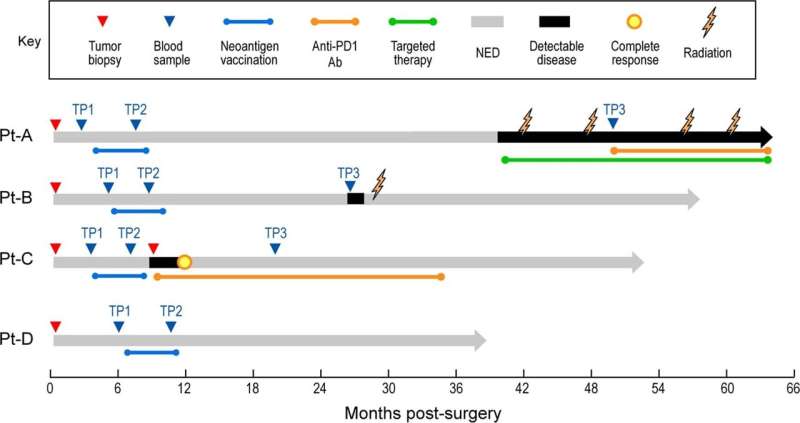
T cells rely on surface proteins called T cell receptors (TCRs) to bind to and destroy viruses, cancer cells, and other invaders in the body. T cells that infiltrate tumors, however, can have varied, sometimes ineffective responses. How the molecular structure and function of TCRs correlates with T cell behavior is not fully understood.
In a new study published in Nature, Giacomo Oliviera, associated researcher and institute member Catherine Wu, and colleagues at the Dana-Farber Cancer Institute and the Cancer Program at the Broad Institute of MIT and Harvard take an in-depth look at the relationship between TCRs and T cell phenotypes. Using single cell RNA (scRNAseq) sequencing and TCR sequencing (scTCRseq) of CD8+ T cells, coupled with the detection of surface proteins, the researchers set out to study the transcriptomic and molecular profiles of melanoma tumor-invading T cells and their TCRs. They found that most T cells with tumor-specific TCRs bore the molecular signs of “exhaustion,” a state of decreased function following chronic antigen exposure. Higher circulating levels of these tumor-invading, exhausted T cells in the blood correlated with persistent disease. These findings highlight the importance of restoring normal T cell function for a productive, effective immune response in cancer therapies.
In the video presentation above, Oliveira describes the research that led to the identification of the properties of antitumor T cells and highlights how such findings can pave the road to the development of novel therapeutic strategies that aim at generating T cells with potent antitumor TCRs and functional cell states.
https://youtube.com/watch?v=FQFfv2RjXa8%3Fcolor%3Dwhite
Credit: Broad Institute of MIT and Harvard
Natalia Mesa, Broad Institute of MIT and Harvard

